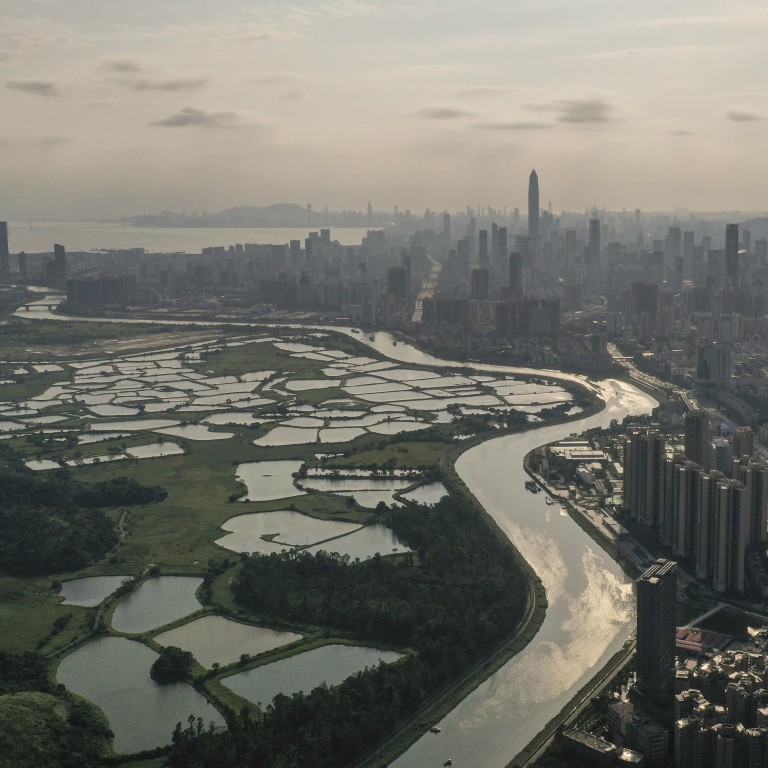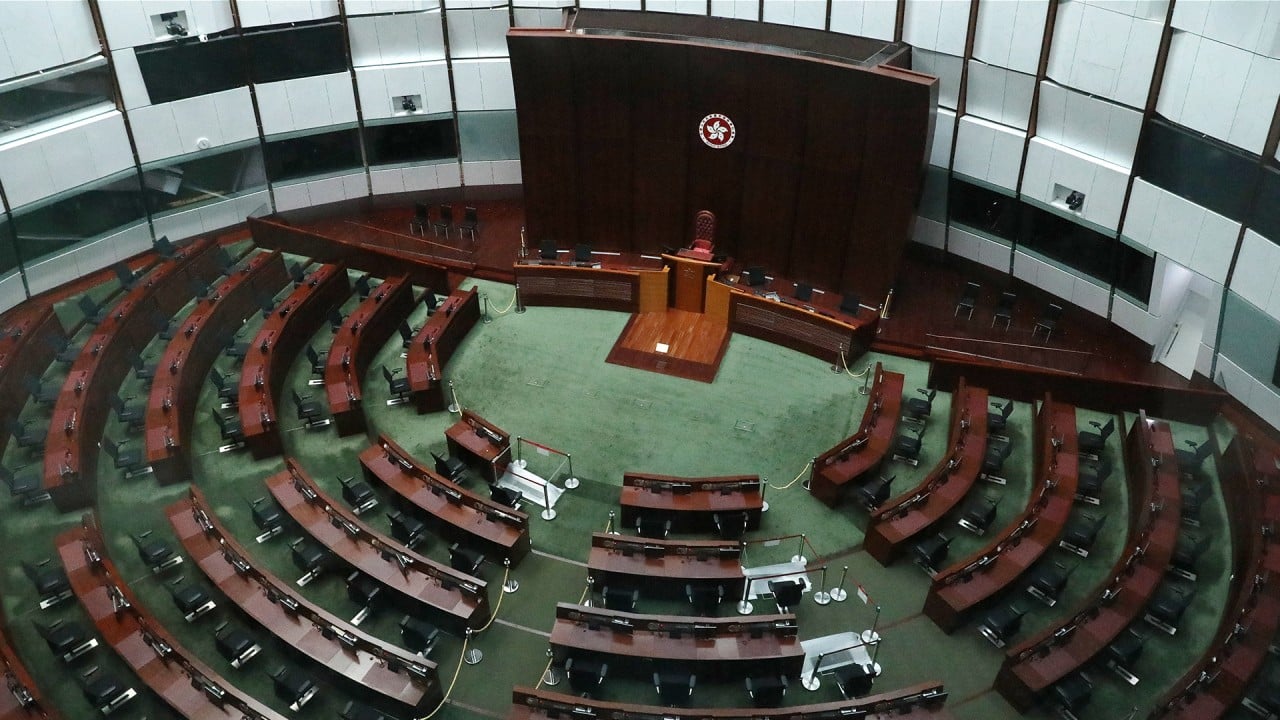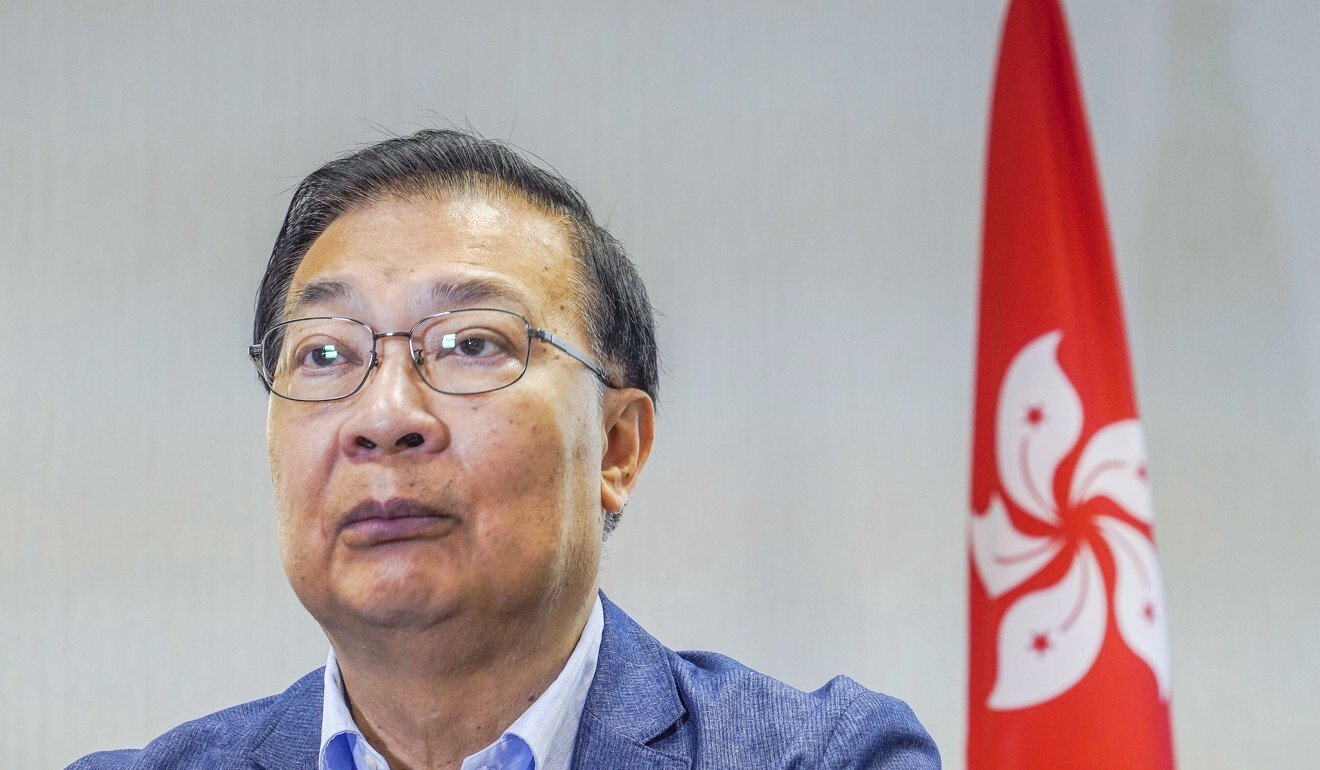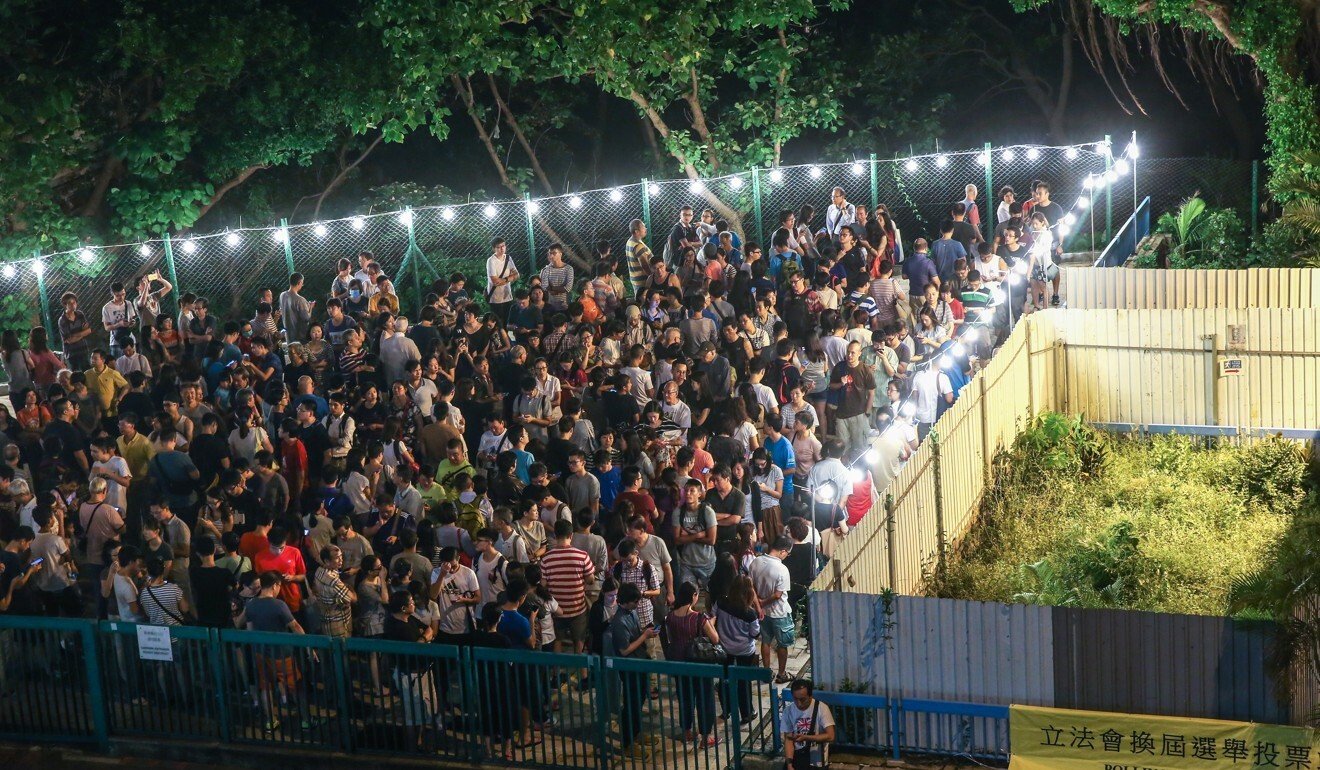
Hong Kong elections: set up polling stations for locals based in Greater Bay Area to cast votes, pro-establishment heavyweight urges
- NPCSC delegate Tam Yiu-chung calls for relaxation of electoral rules in future polls, arguing locals across border also contribute to city
- Opposition member questions reasoning as ‘strange’, saying such treatment should then be extended to all Hongkongers overseas
Hongkongers based across the border should be allowed to vote in the city’s future elections through polling stations set up in Guangdong, a pro-establishment heavyweight said on Sunday.
“We have been calling on the public to move to [mainland cities] in the Greater Bay Area,” Tam told a television show, denying the suggestion would be in favour of the pro-establishment camp.
Hong Kong leader says support for election delay broad, but city ready for backlash
He was referring to Beijing’s plan to turn Hong Kong, Macau and nine other cities in Guangdong into a technological and economic powerhouse rivalling Silicon Valley. Tam’s comments echoed remarks made by Chief Executive Carrie Lam Cheng Yuet-ngor a day earlier, who pointed out that voters’ rights could be compromised under Covid-19 border restrictions.

03:39
Hong Kong Legislative Council elections postponed by a year
“Can we allow residents to vote in Hong Kong elections too by setting up polling stations in major mainland cities?” he said, arguing that current electoral rules stipulating that eligible voters were those who “ordinarily reside in Hong Kong” should be relaxed.
“Society has changed,” Tam said. “What these people in the bay area do are relevant to Hong Kong. The laws should adapt to the changing environment.”
Tam said the administration should also introduce new measures such as electronic or postal voting and priority queues for elderly people in the coming year.
There were about 540,000 permanent residents based in Guangdong province for at least six months annually in mid-2019 upon increased integration with the bay area, according to official data.
Under the Legislative Council Ordinance, permanent residents of Hong Kong aged 18 or above are eligible to register as voters if they submit their local principal residential address and ordinarily reside in the city.
However the definition of “ordinarily reside” is not set out in law and currently determined on a case-by-case basis.
In 2018, the government dismissed suggestions to allow voting outside Hong Kong following a public consultation. Citing complicated logistics and potential legal issues, the administration said such a suggestion must be critically examined to ensure elections were conducted in a “fair, open and honest manner”.
Hong Kong elections: opposition disqualification slammed internationally
Political scientist Dr Ma Ngok from Chinese University said opposition candidates could be placed on unequal ground with their Beijing-friendly counterparts should external voting take place on the mainland.
“It is impossible for the pro-democracy bloc to reach out to these voters based on the mainland with their promotional materials,” he said, citing possible censorship. In contrast, the Federation of Trade Unions had several offices across the border, he added.
Ma also said it was debatable if those who were not based in Hong Kong should enjoy equal rights with others in choosing representatives of a particular constituency.

Democratic Party lawmaker Helena Wong Pik-wan slammed Tam’s proposal as unacceptable, raising concerns over the potential for electoral fraud at mainland polling stations. She also accused the government of trying to design an electoral system that would favour the pro-establishment camp.
The move came a day after election officials banned 12 opposition activists – including four incumbent lawmakers considered to be moderate – from running in the polls.
Hong Kong’s looming Legco vacuum sparks debate in Lam’s inner circle
China’s top legislative body would step in to rule on legal issues stemming from the vacuum that would be created by pushing back the elections from September 6 this year to September 5, 2021.

His remarks appeared to contradict Lam, who said on Friday that the two matters – disqualification from the Legco race and the continuation of lawmakers’ terms in the vacuum – could be handled separately.
Tam added: “This is what the Hong Kong government has thought – but does the NPCSC hold the same view?” He said the top legislative body would carefully make a decision in line with the spirit of the Basic Law, the city’s mini-constitution, after assessing all factors.
Opposition purge ‘clear sign Hong Kong government determined to keep power’
Civic Party’s Yeung strongly slammed the situation as a “typical dilemma” created by those in power which could have been completely avoided in the first place.
“It reflects the fact of emotions over logic when it comes to making important political decisions. Obviously they did not think ahead or could not care less about all possible situations,” he said.
Kenneth Leung, another incumbent legislator whose candidacy was invalidated, argued that the government should have resolved the matter – be it the polls postponement or the fate of the four disqualified lawmakers – in accordance with city laws, instead of leaving it to Beijing.
Leung also questioned Tam’s proposal on electoral arrangements, saying it was “strange” to grant special treatment only to those living in the Greater Bay Area. Residents living in other countries should also be treated equally if the rules were to be relaxed, he said.
In a statement issued on Sunday night, the Bar Association expressed “grave concern” over the postponement, saying it had “serious doubts” about the “legal and evidential basis” of the government’s decision.

